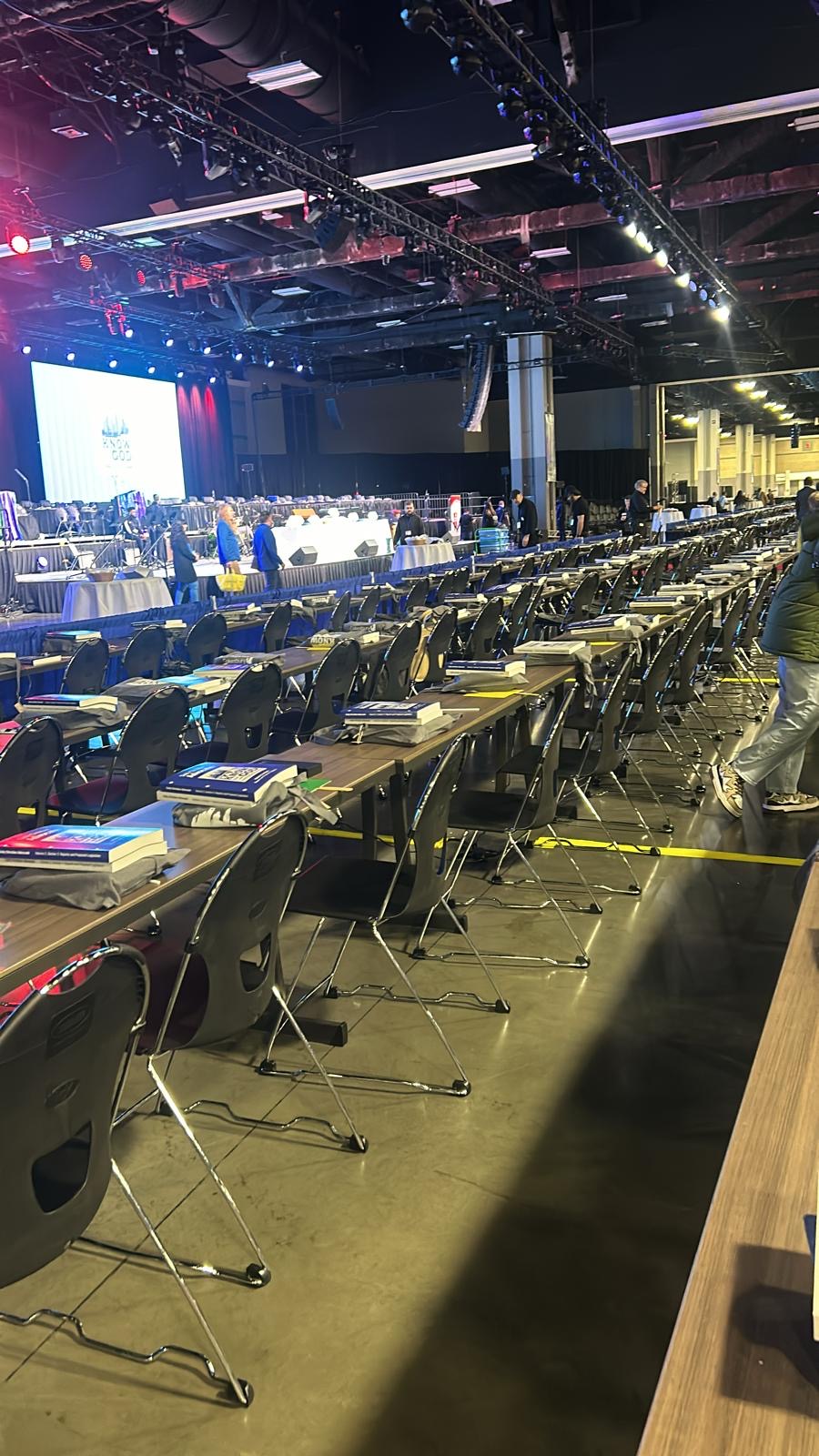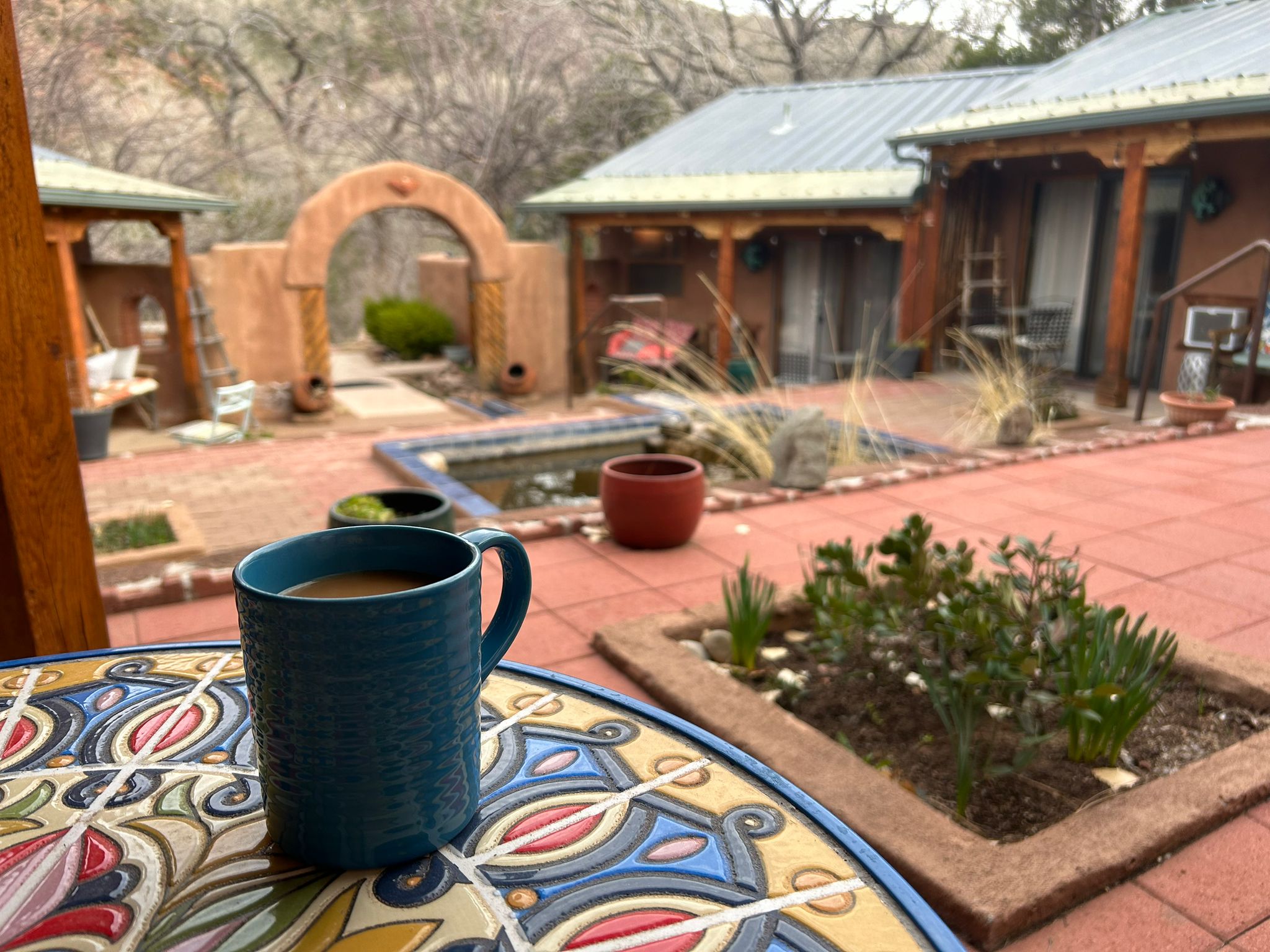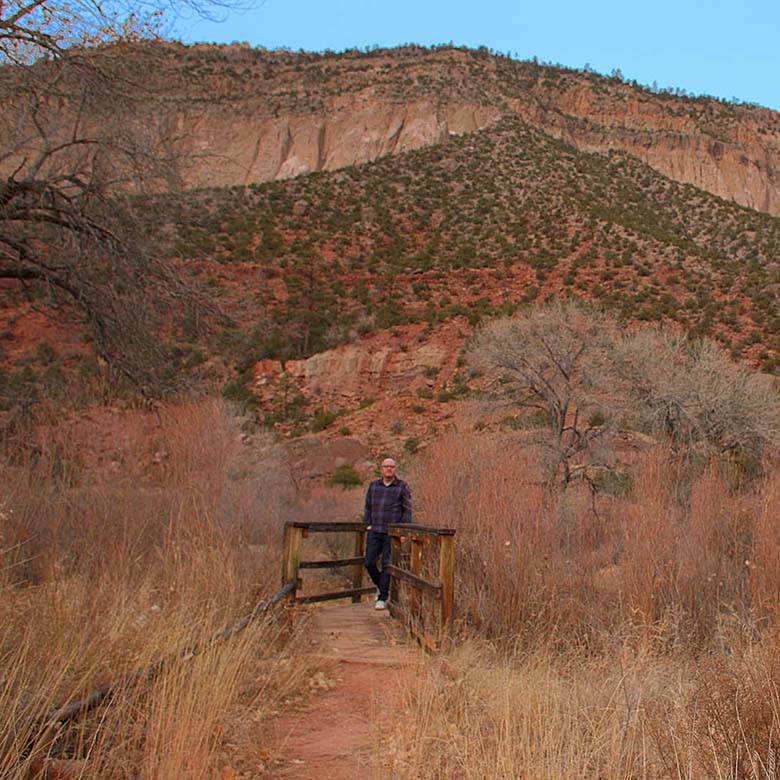
The Gift of Exploration
My first trip abroad took place in 1997. I was in my fourth year at the University of New Mexico
and my dear friend Alison was studying Psychology at Oxford University outside of London.
She invited me to visit her in-between semesters. It was on this trip that I discovered that I do not
mind long plane rides, the hustle and bustle of unfamiliar places, observing people as you
momentarily become part of their world, or simply sharing life with a travel companion – you
get to know a great deal about a person when you travel with them!
To tell you a bit about my relationship with Alison: we met our first few days of our freshman
year of college in the dorms – Santa Ana Dorm to be exact! Alison and I were fast friends and on
Sundays, Alison and I would head to our respective church services – Alison off to a Catholic
service and I to a United Methodist service – and then we would meet for lunch. Alison and I
have shared many life experiences together, including the loss of a parent, adventures in
romantic relationships, friend and family ups and downs, and everything in-between! I believe
we have gifted each other so very much, with the shared gift of travel and curiosity always
present.
I will forever be grateful to Alison for this first adventure across the pond, which taught me so
much about who I am. 38 states, 12 countries, and five continents later, I can fully reflect and
recognize that I have been privileged in my ability to travel and experience this amazing planet
both solo, with family, friends, and groups of like-minded and purposed people.
I was recently asked why it is I enjoy travel so much – “Is it because you are leaving a place or
finding a place?” I would say it’s neither of those things, although it may have at one time or
another been both of those things. What I most appreciate about travel is what I discovered on
that first trip abroad in 1997 – I am a curious person and having the opportunity to be a discreet
interloper in settings which are not my own is both a challenge and a grounding experience for
me. The gift of travel and exploration – both in other regions and in our own neighborhoods –
reminds me that I am not alone in this world and that the bubble I often create for myself is not
the final say.
My hope is that each of you finds a way to explore, challenge, and ground yourself. Be curious
always and get out of your bubble as often as you can!

How We Gather
For the past week, I have found myself serving the United Methodist Church’s General
Conference as a Page. A Page, in this setting, is akin to a legislative runner as the work primarily
takes place up close and personal on the floor of each conference session, ensuring the voting
delegates have what they need, and that information flows with little disruption to those who
need it for the work of the whole to ultimately and seamlessly accomplish the goals of the
conference.
Without getting into the weeds of this process or the polity of the United Methodist Church, I
wanted to take a moment to reflect on how we as humans choose to gather, organize, and
fellowship with one-another. This process of how we do life together is what the fields of
psychology, sociology, and the like refer to as Systems Theory. This intrinsic manner of
organizing dates to the beginning of the reporting of humankind, as all creation came to be
organized in systems of connectionism. We know that systems are not intended to remain static
as evolutions in the system occur and often create stress fractures as a side effect of growth – and
as systems are created to do, the system adjusts.
What has struck me as curious on multiple occasions during the first week of this gathering is
how this subset of people operate in this ever-evolving and stress-fractured system. Unlike
organically created systems, this particular system has been created out of choice, and those who
continue to operate within this system have endured the test of time and continue to do so out of
choice. This choice to gather, organize, and fellowship is one that brings the highest sense of joy
and accomplishment to many, and simultaneously brings the most challenging and painful points
of harm and anguish to many – and the system adjusts.
The choice of how we gather and the system we choose to participate in is ours to make.
Whether we choose to gather with friends or family at the dinner table; or we choose to gather in
conference-style settings; or we choose to gather for worship in community or in solidarity; or
we choose to gather in protest; or we choose to gather over the simple elements of grape and
grain; We choose to gather…
So today, I invite you to take a moment to reflect on how you choose to gather. I encourage you
to reflect on the polarity between joy and accomplishments from systems you choose to
participate in, and the painful points of harm and anguish that these fractured systems sometimes
cause, because it is in the reflection of it all, where we find ourselves – and the system adjusts.
Blessings on this journey,
Kelly
www.ChrysalisCounselingForClergy.org

A Note of Retreat
In the hustle and bustle of everyday life, particularly in professions demanding emotional and
spiritual care like clergy, it’s easy to overlook the critical need for retreat. Yet, statistics on clergy
burnout and saturation serve as a stark reminder of the urgency to prioritize self-care and renewal
practices within our spiritual communities.
According to a study by the Schaffer Institute, around 1,500 pastors leave their ministries each
month in the United States due to burnout or conflict. In addition, anxiety rates among clergy are
13.5% (in comparison to 4.2% general population); 23% depression (8.6% in standard
population); 71% cannot name a meaningful hobby outside of the church; 71% cannot name
close friends; and 83% of clergy believe that pastoral ministry affects their personal relationships
negatively. These statistics are alarming, shedding light on the profound challenges faced by
clergy members in maintaining their well-being amidst the demands of their roles.
In the face of such sobering statistics, retreat emerges as a powerful antidote to negative clergy
wellness. Retreats offer clergy members the opportunity to step away from the relentless
demands of ministry, providing a sacred space for rest, reflection, and rejuvenation.
It is a standing principle of Chrysalis, that incorporating retreats into the rhythm of ministry is
not a luxury but a necessity which is why, last week, Chrysalis Counseling For Clergy held our
12 th Rest & Renewal Retreat encompassing 10 participants and presenters, representing 7 states
and 4 denominations. These spiritual leaders covenanted to prioritized retreat as part of their self-
care regimen, and by doing so, they have invested in their own well-being to ensure their
sustainability in the sacred work of serving others.
In a culture that often glorifies busyness and productivity, the importance of retreat cannot be
overstated, especially for clergy navigating the complexities of pastoral ministry. As we confront
the sobering reality of concerning negative clergy wellness statistics, let us recommit ourselves
to the vital practice of retreat – wherever you find it! – nurturing our souls, and safeguarding the
sacred flame of our calling.
May we heed the call to rest, renew, and return to our ministries with hearts replenished and
spirits restored.
Kelly


